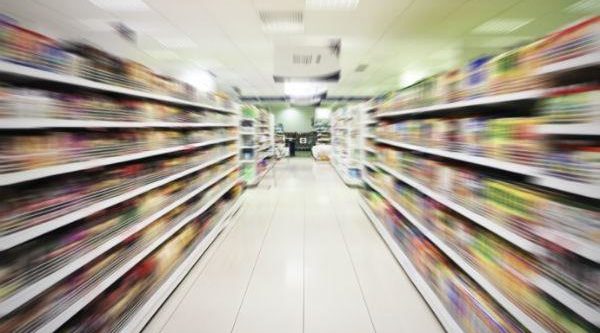
Reports that privately-owned German retailer the Schwarz Group has moved to register trademarks in Australia for its massive one-stop discount shop Kaufland has prompted intense speculation yet again on what Australia’s grocery space will look like in future.
Over the weekend, the Aldi rival confirmed it is conducting a “feasibility study” on the Australian market, having applied for the local trademark on the word “Kaufland”, according to Fairfax.
“We are a growth-oriented corporation assessing our expansion possibilities in existing and potential markets on a regular basis. Thereby we are presently analysing the chances of entering the Australian market,” a spokesperson for the company said.
“Only after having completed those studies, we will be able to come to a decision regarding a possible market entry. If the analysis is regarded as being viable, we will be starting a pre-operational phase of securing developments and properties.”
With the likes of Dick Smith believing that Aldi’s “race to the bottom” model of discount groceries will eventually put pressure on the country’s most established supermarket names while wiping out local suppliers, the spectre of Kaufland is another complicating factor in Australia’s increasingly complex food market.
Over the past two decades the business has steadily branched out from Germany and captured parts of Eastern Europe. And like Aldi, it has its own strong brand identity and relationship to customers.
Here are five things you need to know about Kaufland.
1. The Schwarz Group is big
The Schwarz Group is the fifth largest retail company in the world. The business has grown significantly over the past couple of years; in 2015, it reportedly increased revenue by as much as €5 billion ($7.2 billion) in 12 months, while keeping its operations squarely within Europe.
Schwarz also owns discount retailer Lidl, which has also registered Australian trademarks over the past couple of years as the group starts to look seriously at the benefits of the Australian market.
The Kaufland brand now runs over 1000 stores in Germany, Romania, Bulgaria, Poland, the Czech Republic, Slovakia and Croatia, and books around €21.1 billion ($30.5 billion) in annual revenue.
2. It’s powered by Star Wars advertising
Kaufland has developed a cult following for its digital-first advertising campaigns over recent years, and this goes beyond European markets. Christmas ads are a big deal for the brand, many of which feature kids getting overly creative with the store’s products.
A 2015 tie-in with Star Wars is the most wide-reaching campaign of the past year. It features two small fans who are united after a chance meeting at the supermarket.
3. It’s owned by a “mysterious billionaire”
The press have latched onto the “mystery” label due to a reluctance to give much away about his life to the public, but for the owner of Schwarz Gruppe, Dieter Schwarz, business has always run in the family. The 77-year-old retailer took over the business from his father, Josef, and Forbes placed his net worth at $US20.4 billion in 2016.
He has been engaged with building the brands and expanding the business since taking over leadership of the Schwarz Group in the late 1970s, after Josef Schwarz’s death.
4. Kaufland is a bit like Kmart in the mid 80s …
“If Australians think back to the mid 80s, early 90s, and the idea of “Super Kmart” stores, it’s much like that,” associate professor at Queensland University of Technology Business school Gary Mortimer told SmartCompany this morning when describing the Kaufland stores.
While Lidl has operated in a similar vein to Aldi in its discount food offerings with rounds of discount products that change on a regular basis, Kaufland operates more like a discount retailer of private-label apparel and house items first, with an increasing fresh food offering. For this reason, Mortimer believes Lidl might be the more likely large-scale player in the Australian market in years to come, while any introduction of Kaufland would be a more token effort.
“It would be a destination retailer in the sense that you’d need to get in your car and drive out there,” Mortimer says.
In the EU, Kaufland has found locations more in outer-lying suburbs, including revamping old vacant sites that other retailers haven’t wanted. The priority for inner city in Europe has been Lidl, says Mortimer.
“It’s a lot cheaper to run. And in Australia, I think it’s now a matter of when, not if,” he says.
5. Kaufland and Lidl are getting closer
While Lidl has operated more as a smaller scale grocer to Kaufland’s bigger barn “hypermarket”, the two brands have been brought closer together in recent years. This includes observations from European retail industry journals that the two stores are getting closer in size, rolling out similar “premium” fresh food offerings and are starting to move to streamline the two brand’s supplier bases.
Australia is not the only country getting regular reports of Kaufland – or Lidl’s – arrival on its shores. Over the past five years there’s also been speculation about Lidl entering the US and Kaufland hitting the UK. Then there’s the retailers’ online offerings, which are only just getting started. Both brands have been testing a “Click and Collect” grocery system in Berlin, which, once established, could also form a dual force against Amazon Fresh in the European market.


COMMENTS
SmartCompany is committed to hosting lively discussions. Help us keep the conversation useful, interesting and welcoming. We aim to publish comments quickly in the interest of promoting robust conversation, but we’re a small team and we deploy filters to protect against legal risk. Occasionally your comment may be held up while it is being reviewed, but we’re working as fast as we can to keep the conversation rolling.
The SmartCompany comment section is members-only content. Please subscribe to leave a comment.
The SmartCompany comment section is members-only content. Please login to leave a comment.